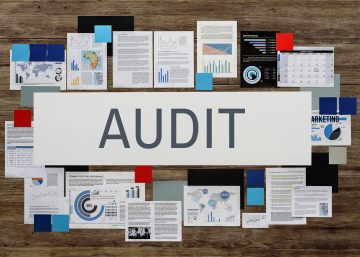Managing a professional practice involves more than just handling clients and completing tasks. It requires a comprehensive understanding of how to organize, plan, and supervise various operations effectively. For Chartered Accountants (CAs), Company Secretaries (CSs), and tax professionals, practice management is the backbone of a successful business. However, many professionals make common errors that can significantly impact their efficiency and client satisfaction.
Effective practice management ensures that your practice runs smoothly, enabling you to meet client expectations, maintain compliance, and achieve business goals. It helps in streamlining operations, improving communication, and enhancing productivity. For CA, CS, and tax professionals, avoiding common practice management errors can lead to better outcomes, more satisfied clients, and a thriving business.
Workflow inefficiencies are a silent killer of productivity. They can lead to bottlenecks, increased costs, and missed deadlines. When workflows are not optimized, tasks can become redundant, and essential steps may be overlooked, leading to frustration among team members and dissatisfaction among clients.
How can you tell if your workflows are inefficient? Look for signs such as repeated mistakes, tasks taking longer than expected, or employees constantly working overtime. If you notice these issues, it might be time to review and streamline your processes.
In any professional service, clear and timely communication is crucial. Clients expect regular updates and prompt responses to their queries. Inadequate communication can lead to misunderstandings, unmet expectations, and a breakdown in client relationships.
Some common communication errors include failing to keep clients informed, not addressing their concerns promptly, and using jargon that they don’t understand. To improve communication, ensure that your messages are clear, concise, and regular.
Time is a valuable resource, and poor management can have serious consequences. For professionals managing multiple clients and tasks, time management challenges can lead to missed deadlines, increased stress, and lower productivity.
To manage your time effectively, start by prioritizing tasks and setting clear deadlines. Use time-tracking tools to monitor how you spend your time, and make adjustments as needed. This will help you stay organized and ensure that you’re focusing on the most important tasks.
Technology plays a crucial role in modern practice management. It can automate repetitive tasks, improve communication, and provide valuable insights through data analytics. By leveraging technology, you can save time, reduce errors, and enhance the overall efficiency of your practice.
Many professionals are unaware of the full range of technology tools available to them. Consider using practice management software, client relationship management (CRM) systems, and secure document-sharing platforms. These tools can help you manage your practice more effectively and improve client satisfaction.
Accurate record-keeping is essential for compliance, reporting, and efficient practice management. It ensures that you have the information you need to make informed decisions and maintain trust with your clients. Inaccurate records can lead to errors, legal issues, and a loss of credibility.
To improve your record-keeping, implement robust systems that allow for easy access and organization of documents. Regularly audit your records to ensure accuracy, and train your team on proper record-keeping practices. This will help you avoid errors and maintain the integrity of your practice.
Delegation is a key management skill that many professionals struggle with. Effective delegation allows you to maximize productivity, ensure tasks are completed efficiently, and reduce the risk of burnout. However, many professionals either fail to delegate or do so ineffectively.
Some common delegation mistakes include micromanaging, not providing clear instructions, and failing to trust your team. To delegate effectively, you need to set clear expectations, empower your team members, and provide them with the resources they need to succeed.
In the fast-paced world of finance and taxation, staying updated with the latest regulations, technologies, and best practices is crucial. Continuing education and training ensure that you remain competitive and knowledgeable in your field.
There are many ways to continue your education, including attending workshops, webinars, and professional development courses. By staying engaged with industry developments, you can enhance your skills and knowledge, which will benefit both your practice and your clients.
Client feedback provides valuable insights into how well your practice is performing and where improvements are needed. Ignoring feedback can lead to missed opportunities for growth and client dissatisfaction.
To collect feedback, consider using surveys, direct communication, and client reviews. Once you’ve gathered feedback, take the time to analyze it and make necessary adjustments to your practice. This will help you improve client satisfaction and ensure that you’re meeting their needs.
In today’s digital world, security is more important than ever. Protecting sensitive client information is crucial for maintaining trust and compliance with regulations. Inadequate security measures can lead to data breaches, legal issues, and damage to your reputation.
To protect your practice, implement security measures such as data encryption, secure access controls, and regular security audits. Make sure that your team is trained on security best practices and that your systems are regularly updated to protect against new threats.
Setting clear goals and Key Performance Indicators (KPIs) is essential for measuring progress and achieving success. Without clear goals, it’s difficult to assess performance, identify areas for improvement, and drive your practice forward.
To define KPIs, start by identifying the most important aspects of your practice, such as client satisfaction, productivity, and financial performance. Set specific, measurable goals for each area, and regularly review your progress. This will help you stay on track and make informed decisions.
Conclusion :
By addressing these common practice management errors, CA, CS, and tax professionals can significantly enhance their practice’s efficiency and effectiveness. Implementing the suggested improvements will lead to better client relationships, improved productivity, and overall success.
Continuous improvement is key to successful practice management. Stay proactive in identifying and addressing errors, and embrace best practices to ensure ongoing growth and success.
FAQs :
Q.1 What are the most common practice management errors for CA, CS, and tax professionals?
Common errors include inefficient workflows, inadequate client communication, poor time management, and insufficient use of technology.
Q.2 How can I improve workflow efficiency in my practice?
Review and streamline your workflows, eliminate redundancies, and use workflow management tools to enhance efficiency.
Q.3 What are some effective strategies for client communication?
Regular updates, prompt responses, and clear communication are key strategies for effective client communication.
Q.4 How can I manage my time better in a busy practice?
Prioritize tasks, set clear deadlines, and use time-tracking tools to manage your time effectively.
Q.5 What technology tools should I consider for practice management?
Consider tools for practice management, client relationship management, and secure document sharing.
Q.6 How do I ensure accurate record keeping?
Implement robust record-keeping systems, regularly audit records, and train your team in proper practices.
Q.7 What are the best practices for delegation in a professional setting?
Set clear expectations, trust your team, and provide clear instructions to delegate effectively.
Q.8 Why is continuing education important for my practice?
Continuing education helps you stay updated with industry trends and regulations, ensuring competitiveness and knowledge.
Q.9 How can I effectively gather and use client feedback?
Use surveys and direct communication to gather feedback, and make necessary adjustments based on the insights gained.
Q.10 What security measures are essential for protecting client data?
Adopt practices such as data encryption, secure access controls, and regular security audits to protect client data.
Interested in improving your customer satisfaction, increasing client retention, preventing revenue leakage, maximizing efficiency and effectiveness? Register for a demo of ERPCA, India’s first multi-lingual, mobile-app based practice management software for CA firms, tax consultants, financial services advisory firms and more. Better still, sign up for a 14-day free trial of ERPCA and see for yourself the wonderful features and benefits of this software.










